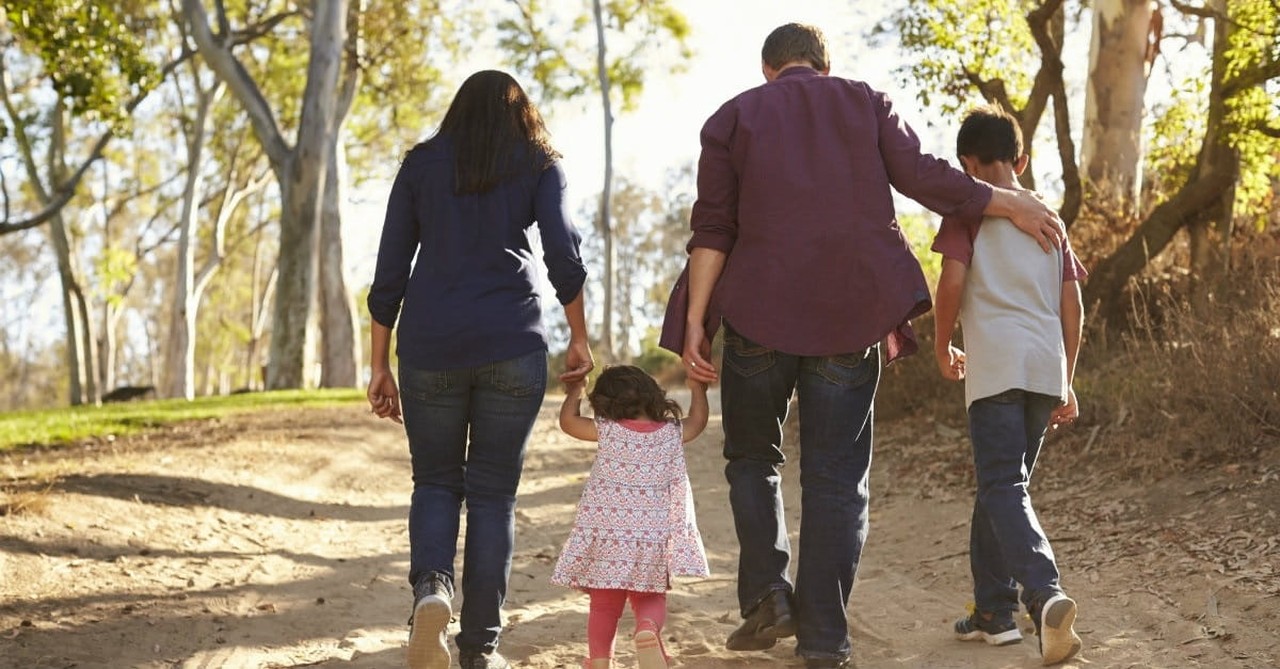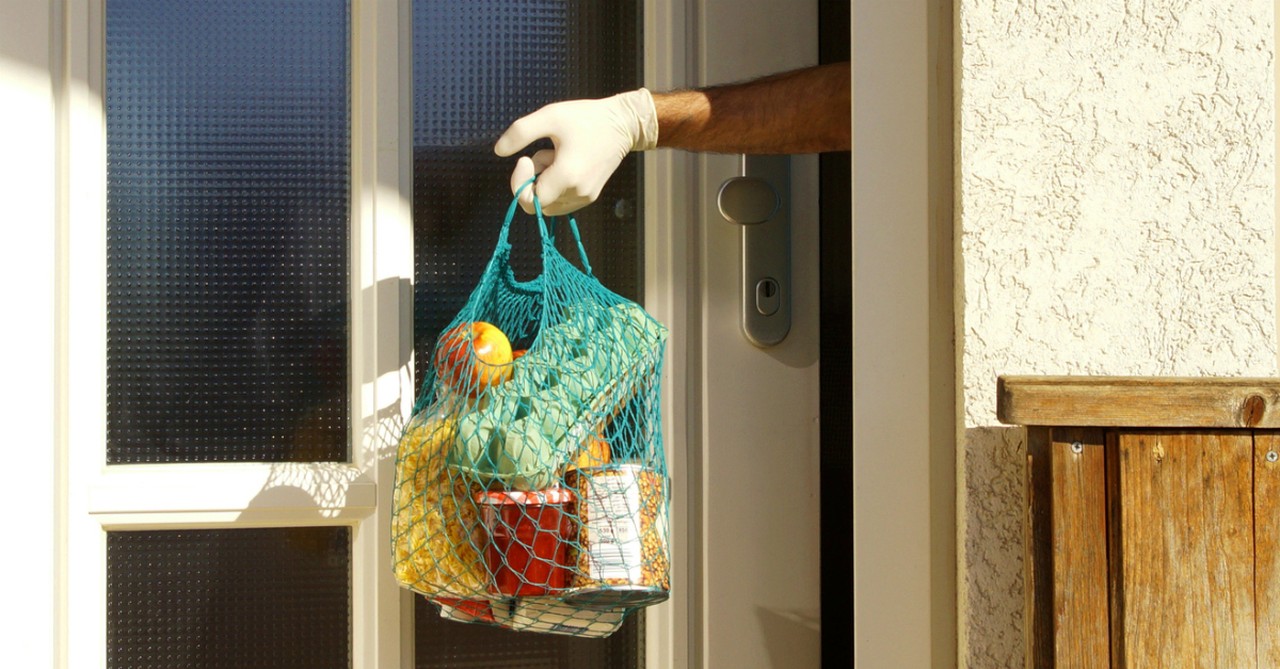5 Ways to Extend Radical Kindness amidst Coronavirus Chaos

Recently I was counting down the days, giddy in anticipation of a long-awaited cruise. My husband and I were looking forward to the time away, just the two of us and a couple of friends—no kids, no interruptions. Just rest and rejuvenation.
Then the week before our cruise, it was canceled. Our kids’ school announced it was closing, and our workplace suggested we work from home if we could. The inevitability of mass change in life rhythms was upon us.
Today we’re at home with our three children. Because one of our kids has a fragile immune system, we’ve elected to not have sitters or other people over.
And we are not resting.
We wake up in the middle of the night or have trouble falling asleep. Our time is split between corralling the kids and trying to get work done in the cracks. We put ourselves in time-out to nap or to take a much-needed deep breath.
Personally, I’ve cried: over the state of our world, the loss of life, and seeing people grieve without the gift of proximity. I’ve cried over how this time of chaos in the midst of a pandemic has disproportionately impacted people on the fringes of our society, those who have historically been marginalized and ignored.
How are we to navigate the lament that’s so familiar these days?
Photo Credit: ©Kelly L. Howard
Connecting amidst Chaos

Connecting amidst Chaos
SLIDE 1 OF 7
Perhaps you’re dodging and navigating your own chaos right now: You’re an essential worker, or you live with one. You want to be close to the person you love, and yet it’s just too dangerous right now.
Or, you’re pastoring a flock. And yet, you have no idea how to lead given the great chasm of the unknown or the own complexity of your own family life.
You’re wanting to be present with your kids. And yet, how do you remind them that this is not their fault? That not being able to see their friends has nothing to do with anything they’ve done? How do you continue to teach them and celebrate them, while feeling like you don’t have much to give?
Maybe you live alone by yourself. And there’s just no good way to adequately communicate how the loneliness grips you, or how much you wish others were around to bear witness to your creativity, your longings, your dreams, your fears.
You miss your people. You’re concerned about your mental health. Finances are tight or non-existent. You want this to be over. And, yet, the chaos swirls.
How do we connect and offer hope to a grieving world, when we ourselves grieve? How do we extend ourselves in displays of goodness and healing, when we ourselves are hurting?
Photo Credit: ©GettyImages
Being Kind to One Another

Being Kind to One Another
SLIDE 2 OF 7
A text that’s brought me much consolation in this season is an unlikely one. Here, the apostle Paul writes to the church at Ephesus:
Be kind to one another, tenderhearted, forgiving one another, as God in Christ forgave you. Ephesians 4:32 (ESV)
Paul has just finished warning the Ephesians against hardened hearts and callousness, proclaiming that they put on the “new self” that’s available to them because of Christ.
Here’s what’s true about chaos: It has the potential to harden us. It has the potential to toughen us up to the point of callousness, if we let it. In chaos, we go inward and self- protect. We brace ourselves for more discomfort. We look out for ourselves, and our vision for others is blurred.
So how do we maintain tender hearts in the midst of a season like the one we’re in right now? How do we reject the temptation to become hardened and self-absorbed, concerned only with ourselves?
I believe in my core that one way keep our hearts pliable, tender, and sensitive to the Spirit of God (and to others with whom we’re meant to be in relationship), is to engage kindness as a part of our new daily disciplines.
Here are five ways we might choose to extend kindness in this season of chaos:
Photo Credit: ©GettyImages/ThitareeSarmkasat
1. Serve Your (Actual) Neighbors

1. Serve Your (Actual) Neighbors
SLIDE 3 OF 7
It’s so easy to think about our families, our co-workers, or even people in a different state or the other side of the world right now. When chaos swirls, it may be easiest to stay focused on people closest to us—or farthest away. But now is a great time to form unlikely and life-giving relationships with your actual neighbors.
In our neighborhood, we’ve found that what people need are positive, healthy distractions, words of encouragement, and practical provision. Take note of what your neighbors are needing right now by joining an online forum like Nextdoor or your local neighborhood Facebook group. Periodically ask questions like: “Does anyone need me to pick up groceries for them today?” or “How can we pray for you all tonight?” These simple questions provide great ways to foster empathy and keep your heart engaged with others around you.
As the weather warms up, offer to do yard work or other projects that don’t require close proximity. Sanitize gently used books, toys, or magazines and set up a leisure library.
Check in with your local church or other non-profits to see what the largest needs are for your ZIP code or neighborhood. Who knows? Your simple questions or quick research may meet someone in a place of physical or emotional need at a crucial time.
Photo Credit: ©Unsplash/Engin Akyurt
2. Give Generously to Those Least Expecting

2. Give Generously to Those Least Expecting
SLIDE 4 OF 7
As you get to know your neighbors, follow those needs with unexpected generosity. In a time where the financial reality for many may be uncertain, what would it look like for us to go beyond financial giving to other displays of sacrifice?
Bake or cook a meal for an elderly neighbor, or a family that includes someone in the medical profession (or another essential worker). If you’re hesitant to cook, buy gift cards from restaurants in need of support and give those out to different neighbors who would benefit from takeout or a night off of needing to cook a meal.
So many are on the frontlines and are only experiencing transactional forms of relationship. Next time that you’re at the gas station, grocery store, or answering the door to pick up your packages being dropped off, stop whoever is on the other side of that service to genuinely offer thanks and gratitude for how they’re serving the community.
Whether it’s monetary contributions to a local organization, or relieving some of the chaos for someone else—giving can take a creative turn in the face of chaos. Give some thought to what generosity might look like for you and your family—not just to bring joy to someone else, but to keep your own heart tender and hope-filled.
The Lord just might be longing to extend His kindness to someone else through you.
Photo Credit: ©GettyImages/Imagesines
3. Cultivate Joy Using What You Have

3. Cultivate Joy Using What You Have
SLIDE 5 OF 7
My husband and I love to have friends over. We also love going to concerts, festivals, and new hubs of our city that celebrate diversity of culture and life experience. Since all of those options are off the table and we’re still wanting to both bring and experience joy, we decided to use what we already have at home.
My husband is a musician. So, one Sunday afternoon, I asked him if he’d be up for pulling a stool out onto the front lawn to play some music for the neighborhood. We posted in our neighborhood Facebook group to invite anyone who would want to get out of the house for a walk or some exercise, and a few minutes later, there was a dispersed gathering of neighbors all around us.
Some pulled up lawn chairs in their yards, other watched from their open windows. But for 30 minutes, we cultivated joy without pulling out of our driveway. We used what we already had at our disposal, and gave it away.
What do you already have that others might receive joy from experiencing? Your art, your words, your food, your creativity? If it brings you and those closest to you joy—chances are, it will bring joy to someone else. Hop online or on social media, or step outside. Chances are others are thirsty for the joy you’re able to bring.
Photo Credit: ©GettyImages/Iuliia Zavalishina
4. Replace Negativity and Fear with Goodness and Hope

4. Replace Negativity and Fear with Goodness and Hope
SLIDE 6 OF 7
Scroll down any news feed and it’s everywhere: personal attacks aimed toward decision-makers, judgments about people’s thoughts and strategies, articles and videos created to inspire fear and widespread anxiety.
It’s not hard to find negativity and it’s not hard to be perpetually sucked in to its gravitational pull. The Scriptures remind us to be transformed by the renewing of our minds (Romans 12:2), rejecting being conformed by the patterns [of negativity and fear] of this world.
Instead, what would it look like to scatter messages of goodness and hope all around us, for our own minds’ own saturation, and to give others something to hold onto that might bring peace and healing?
Whether it’s Scripture or messages written in chalk on your sidewalk, a daily reminder posted in your kitchen, or daily/weekly posts of inspiration on social media—let’s meet the negativity and fear with transformational words that pierce the darkness and bring light to the world.
Photo Credit: ©GettyImages/jacoblund
5. Make Space to Be Kind to Yourself

5. Make Space to Be Kind to Yourself
SLIDE 7 OF 7
Finally, tenderheartedness in a season of chaos isn’t reserved for others. What would it look like to remain kind to ourselves in a time when internal pressure to perform and produce might be heightened?
Take time to take stock of what actually brings you life and keeps you healthy. At one point in my life, I thought binge-watching TV, eating sugar, and sleeping all day would be helpful. Now I know the difference between a temporary escape and actual life-giving habits.
Watching TV and eating sugar may provide temporary satisfaction, but that type wears off pretty quickly. As a matter of fact, I usually end up more frustrated, tired, or sluggish. But when I make space for silence and solitude, when I soak in the Word of God and drink water and eat healthy meals—I know I’m caring for myself in ways that have a long-lasting, positive impact.
Nowadays, being outside—weather permitting—is a must. It’s not just about fresh air. I need to be reminded of the goodness of creation and how life still happens in the middle of storms.
I exercise 3-4 times a week and try to connect with friends, somehow, every day. It’s good for me to be aware of what others are experiencing, to see outside of myself and hold things with others I care about.
Finally, kindness sometimes looks like permission. Permission to grieve. Permission to be angry. Permission to not have the answers or know how to make something perfect.
The last part of the Ephesians 4 passage is the part that makes all of this possible:
...as God in Christ forgave you.
Believe it or not, we can thrive in chaos. We can extend ourselves in peacemaking and kindness-bringing. We can be better on the other side of this. Not because of anything we’ve willed ourselves to do, but because, in Christ, God extended Himself to us in the midst of the chaos of a rebellious humanity and a hostile, broken world.
He came for us. He cut through the chaos. And he lived. Because He lives, so can we.
May we joyfully tap into a power that is not our own—to bring kindness to ourselves and everyone around us.
Photo Credit: ©GettyImages/m-gucci

Originally published April 14, 2020.






